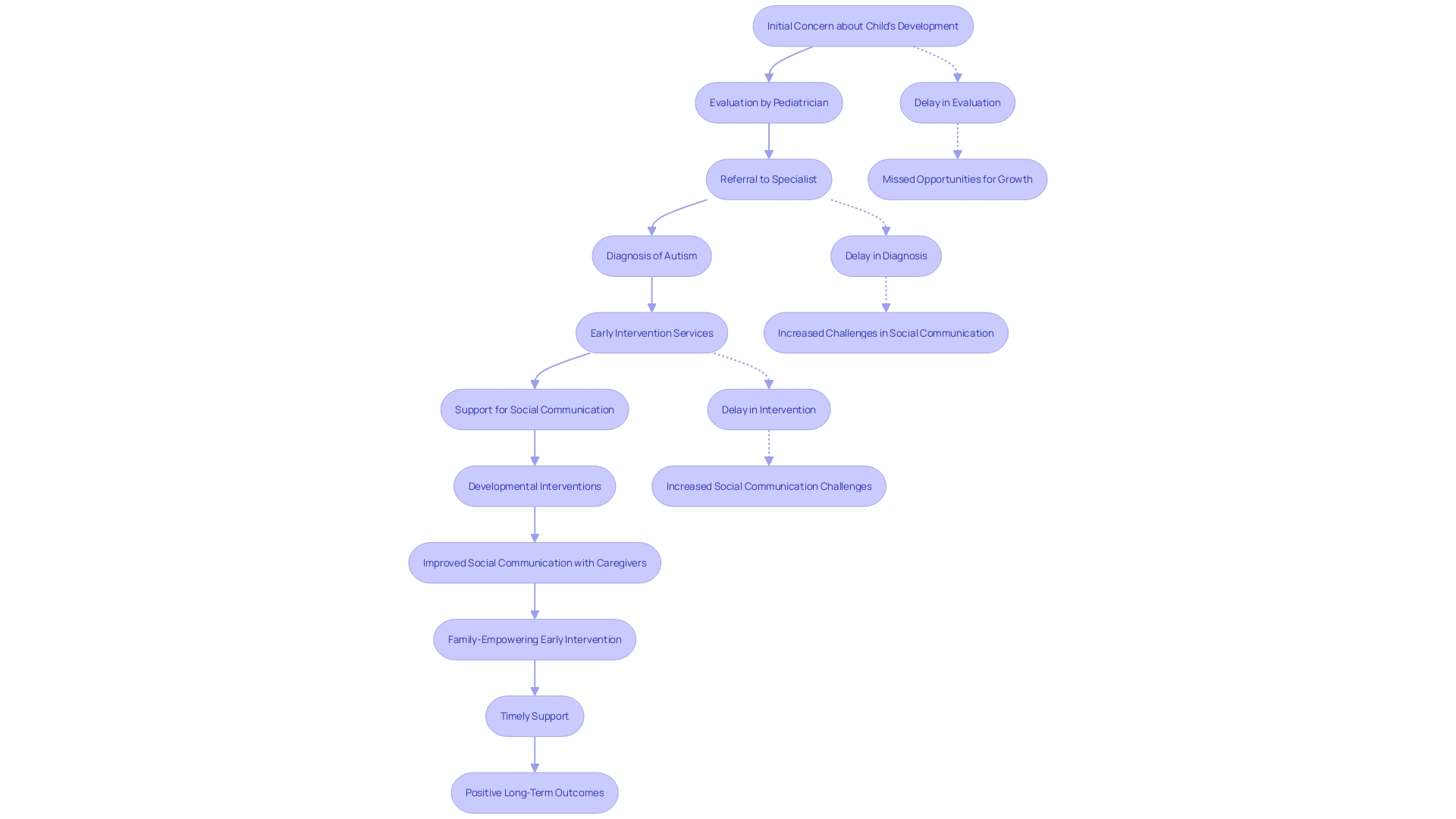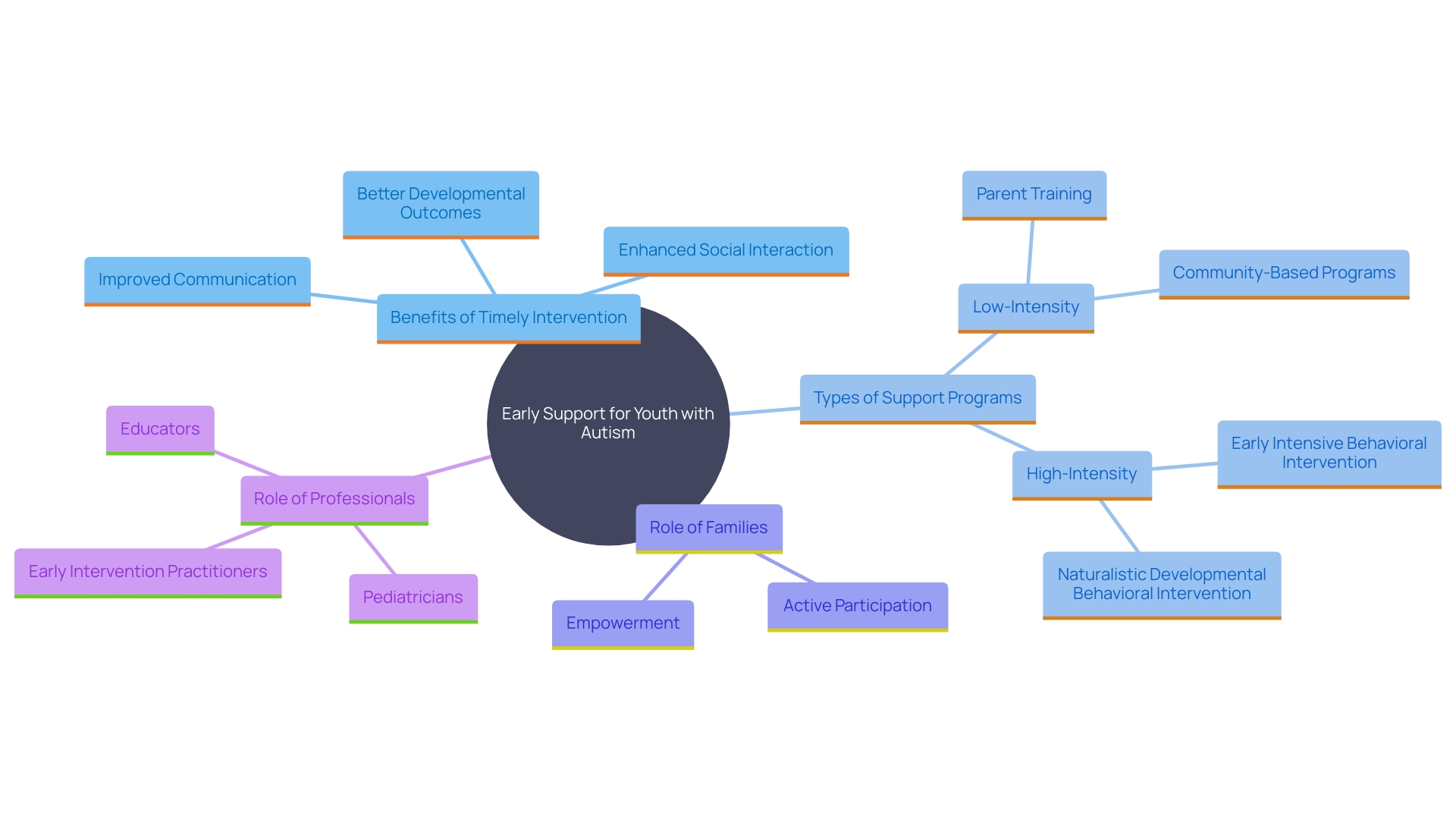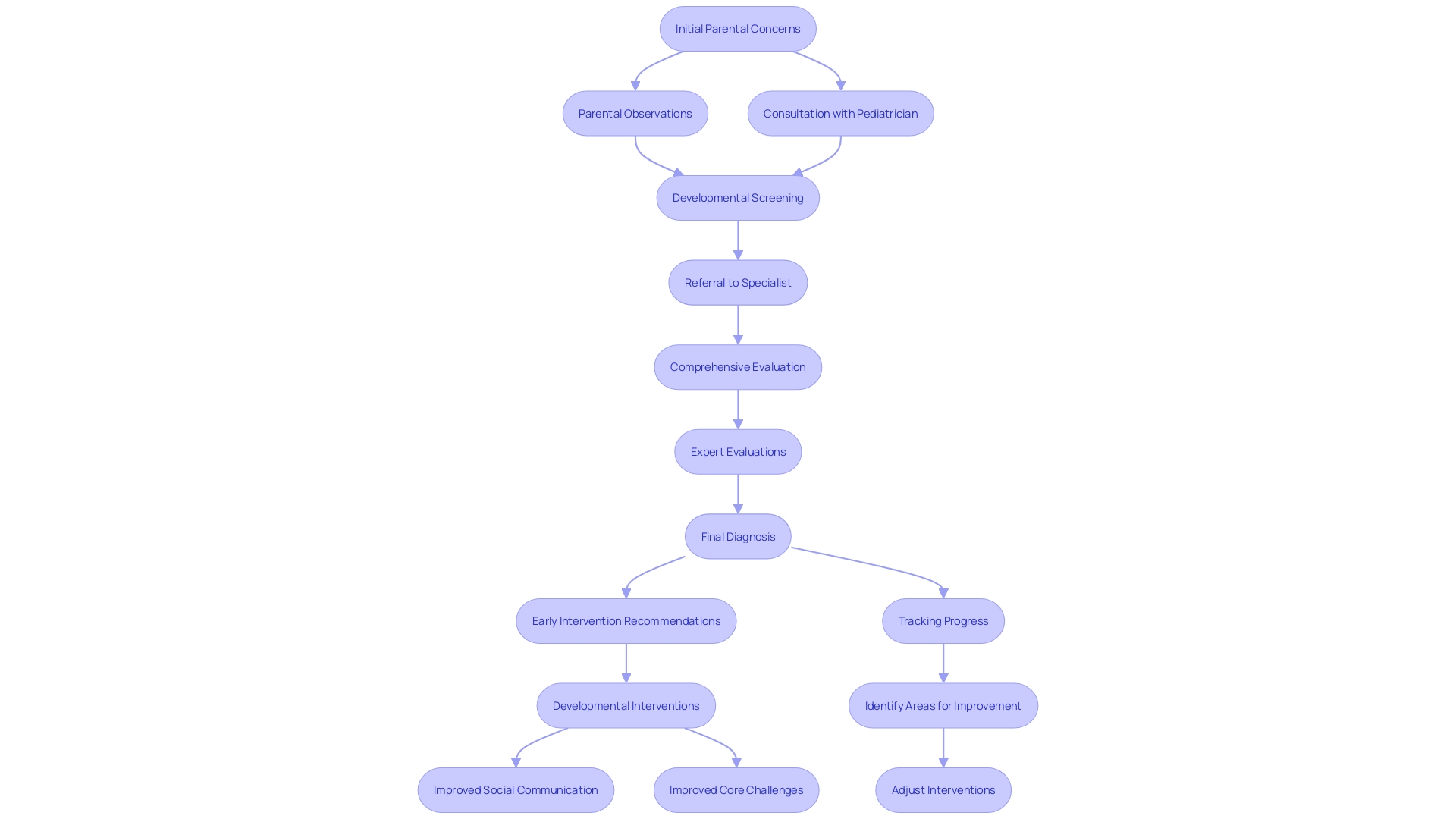Understanding the signs of autism in children can be a challenging and often overwhelming experience for parents. Various factors, such as cultural beliefs, societal perceptions, and systemic barriers, contribute to parental denial, making it difficult to acknowledge potential autism signs. However, ignoring these early indicators can significantly impede a child's development.
Early intervention is crucial, offering vital support that fosters communication and social skills, leading to more favorable developmental outcomes. This article delves into the common reasons behind parental denial, the consequences of ignoring autism signs, the importance of early intervention, and strategies for educating and supporting parents through the diagnosis process. By addressing these aspects, it aims to empower parents with the knowledge and resources necessary to support their child's growth and well-being.
Parental refusal to acknowledge signs of the condition can arise from multiple elements, such as cultural beliefs and societal views on the disorder, which greatly affect how guardians perceive their offspring's behaviors. A study conducted by the Journal of the International Neurology Association revealed that in some communities, individuals and adults with autism are often stigmatized and even labeled as demon-possessed or wizards, causing mental and emotional distress. This social stigma can lead guardians to fear the consequences of a diagnosis, hoping their offspring will outgrow the signs. Additionally, the process of securing an appropriate diagnosis and support can be fraught with challenges. Parents may struggle to access care support and additional services due to factors like travel distance and high service demand, as highlighted by a research and advocacy project supported by the Community Foundation for Northern Ireland. Furthermore, the American Psychiatric Association's Diagnostic and Statistical Manual, Fifth Edition (DSM-5) offers standardized criteria to assist in diagnosing ASD, depending significantly on descriptions from guardians or caregivers and professional observations. The fear of confronting these systemic obstacles and societal evaluations can make it challenging for parents to recognize potential signs of developmental differences, as they often hope their offspring is merely progressing at their own speed.
Disregarding early indicators of this condition can greatly hinder a young person's growth. Prompt assistance plays a crucial role in fostering communication and social abilities in youngsters with autism. Postponing this assistance results in losing essential chances during the early neurodevelopmental phase when measures are most impactful. This can lead to increased struggles in school, difficulties in forming relationships, and a rise in behavioral issues. Furthermore, inadequate access to timely and appropriate resources can heighten stress for both the child and their family.
Research supports that early developmental strategies substantially enhance social communication by involving caregivers and addressing core challenges associated with autism. For instance, naturalistic developmental behavioral approaches have shown significant improvements in social communication. However, the landscape of available measures is diverse and, in some cases, inadequately monitored for potential adverse effects.
A comprehensive meta-analysis led by Micheal Sandbank, PhD, highlighted that many studies on early strategies lack quality, which affects recommendations and patient outcomes. This underscores the need for clearer communication between healthcare providers and families regarding the effectiveness and potential risks of these interventions.
Programs that provide early, developmentally appropriate, and family-empowering support are essential. For instance, initiatives designed for very young individuals with social communication challenges have been demonstrated to be practical and effective. Such programs can create a substantial impact on the quality of life for youngsters with developmental disorders, facilitating improved social adaptation and overall growth.
Delays in diagnosis and treatment, often due to systemic issues like long waitlists and lack of standard care, further exacerbate these challenges. Typically, young individuals and their households may endure a wait of up to three years from the initial worry to an evaluation, losing valuable support phases. Addressing these systemic barriers is crucial to ensure that all young individuals have the opportunity to receive timely and effective support.

Timely support is essential in addressing the requirements of youth with autism. Research consistently shows that the sooner a young person receives support, the more favorable their developmental outcomes. Programs initiated at an early stage are intended to enhance communication abilities, social interactions, and behavioral management. These programs often incorporate tailored strategies that assist young individuals in better navigating their environment, establishing a robust foundation for future learning and growth.
For example, a study emphasized the effectiveness of low-intensity support programs, involving 2-3 hours per week of caregiver and clinician-provided assistance. Children in these programs showed greater engagement and used a wider variety of language compared to those without such support. Furthermore, parents engaged in these initiatives were better prepared to employ methods that aided their child's growth, leading to significant enhancements in both parent and child results.
Additionally, developmental strategies have been demonstrated to improve social communication in caregiver interactions, tackling fundamental challenges related to autism. However, it is essential to consider potential adverse effects due to inadequate monitoring and reporting. The landscape of early childhood support varies widely, with approaches ranging from intensive behavioral methods to naturalistic developmental behavioral strategies. In the United States, early intensive behavioral support, requiring 20-40 hours per week, is often recommended, while other countries may endorse less intensive approaches.
Ultimately, early, developmentally suitable, and family-empowering strategies provide significant benefits, promoting skill gains that contribute to positive long-term outcomes. Pediatric specialists and medical practitioners have an essential part in directing families towards these measures, ensuring youngsters showing early indications of developmental disorders obtain the assistance required to flourish.

Multiple elements can influence a caregiver’s understanding of developmental disorder indicators in their child. Parents’ own experiences and knowledge about autism play a significant role; those who are unfamiliar with the spectrum may not recognize the subtle signs. Access to information and resources is also vital; individuals who lack support networks or educational materials may feel isolated and uncertain. Furthermore, the presence of other stressors, such as financial difficulties or family dynamics, can further cloud a caregiver's ability to assess their child's behavior objectively.
Learning and assistance play a vital role in helping caregivers to confront denial about indicators of the condition. By providing accurate and comprehensive information about autism, caregivers are empowered to recognize behaviors that may require further evaluation. Support groups and community resources are instrumental in offering reassurance and guidance to caregivers. These resources assist in fostering an atmosphere of understanding and open dialogue, allowing parents to feel more at ease requesting assistance and advocating for their offspring's needs. Timely support initiatives are crucial, as they can be customized to tackle the particular social interaction difficulties encountered by young individuals with developmental disorders. This approach not only supports the individual’s development but also empowers the family as a whole. 'According to the Interagency Autism Coordinating Committee (IACC), coordination and communication across federal agencies and partnerships with the community affected by the condition are vital for improving research and services related to it.'. The IACC highlights the significance of a comprehensive and inclusive strategy, engaging different parties, including guardians, autistic individuals, and specialists, to improve support frameworks for households with autistic youth.
The process of diagnosing this condition can feel overwhelming for many families, often involving numerous evaluations, assessments, and consultations with healthcare providers. Understanding each step of this process is crucial to reducing anxiety and empowering families. Identifying this condition generally entails two primary sources of information: comprehensive observations from parents or caregivers regarding the child's development and expert evaluations of the child's behavior. The DSM-5, a diagnostic manual utilized by healthcare professionals, offers standardized criteria for identifying the condition, although no single tool should be exclusively depended on.
Typically, households encounter a three-year delay from initial worries to an autism evaluation, postponing essential early support. Early intervention is vital as it can significantly improve developmental outcomes, especially during the early neurodevelopmental period. Due to excessively long waitlists and a lack of standardized care, many young individuals miss out on this crucial window. The inequities and inefficiencies in the current diagnostic process are a major concern, particularly for disadvantaged families.
Organizations like The Autism Community in Action (TACA) are working to address these issues by advocating for earlier and more accurate diagnostic tools. NeuroQure, for example, is creating technologies that seek to identify developmental disorders within a few weeks of birth, significantly shortening the usual five-year diagnostic process.
Experts emphasize the importance of involving a broader range of healthcare providers in the diagnostic process to meet the growing demand. Equipping more practitioners with the necessary skills will ensure that young individuals with early signs of autism gain timely access to developmentally appropriate interventions. This collaborative effort can help families navigate the diagnosis journey more effectively, ensuring that children receive the support they need as early as possible.

Recognizing the signs of autism in children presents a significant challenge for many parents. The article highlights that parental denial often stems from cultural beliefs, societal stigma, and systemic barriers that hinder access to timely diagnoses and support. Understanding these factors is essential for creating an environment where parents feel empowered to seek help.
Ignoring early signs of autism can lead to considerable developmental delays and difficulties in social and academic contexts. Early intervention is crucial, as it can enhance communication and social skills during critical developmental stages. Programs designed to provide targeted support can significantly improve outcomes for children with autism, underscoring the importance of prompt intervention.
Education and awareness about autism are vital for overcoming denial. Parents equipped with accurate information and resources are better prepared to recognize early signs and pursue assistance. Support networks contribute significantly to fostering understanding and empowerment among families.
Navigating the diagnosis process can be daunting, but clarity about its steps can reduce anxiety. Advocacy for improved diagnostic tools and reduced wait times is essential to ensure that children receive timely support. By addressing systemic challenges and fostering collaboration among healthcare providers, families can be better supported in their journey.
In summary, early recognition and intervention for autism can profoundly impact a child's developmental trajectory. Empowering parents with knowledge and resources is critical for promoting early intervention, ultimately enhancing the quality of life for children with autism and their families.